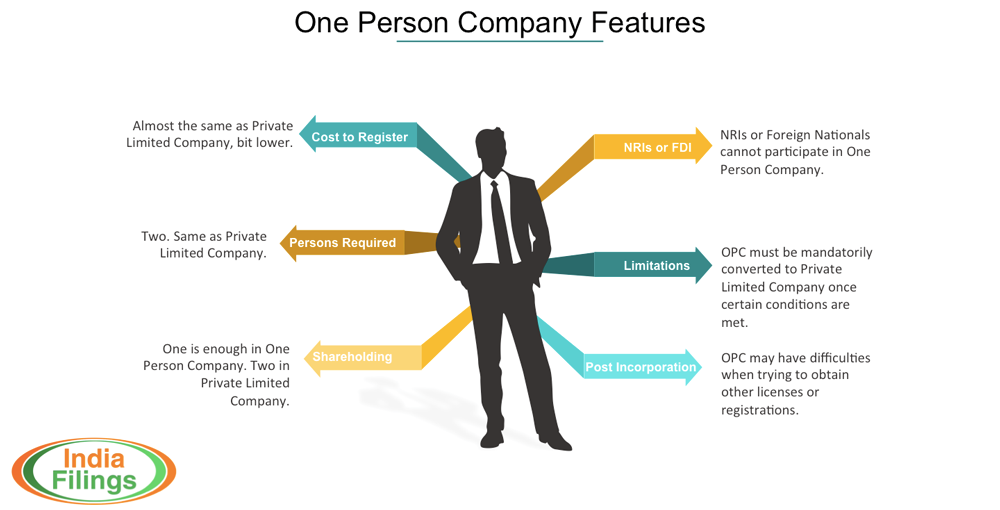Great Service
One Person Company

One Person Company
The Companies Act, 2013 completely revolutionized corporate laws in India by introducing several new concepts that did not exist previously. On such game-changer was the introduction of One Person Company concept. This led to the recognition of a completely new way of starting businesses that accorded flexibility which a company form of entity can offer, while also providing the protection of limited liability that sole proprietorship or partnerships lacked.
Features of a One Person Company
-
Private company
Section 3(1)(c) of the Companies Act says that a single person can form a company for any lawful purpose. It further describes OPCs as private companies. -
Single-member
OPCs can have only one member or shareholder, unlike other private companies. -
Nominee
A unique feature of OPCs that separates it from other kinds of companies is that the sole member of the company has to mention a nominee while registering the company. -
No perpetual succession
Since there is only one member in an OPC, his death will result in the nominee choosing or rejecting to become its sole member. This does not happen in other companies as they follow the concept of perpetual succession. -
Minimum one director
OPCs need to have minimum one person (the member) as director. They can have a maximum of 15 directors. -
No minimum paid-up share capital
Companies Act, 2013 has not prescribed any amount as minimum paid-up capital for OPCs. -
Special privileges
OPCs enjoy several privileges and exemptions under the Companies Act that other kinds of companies do not possess.
Providing Services In
-
One Person Company Registration






